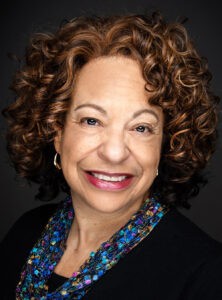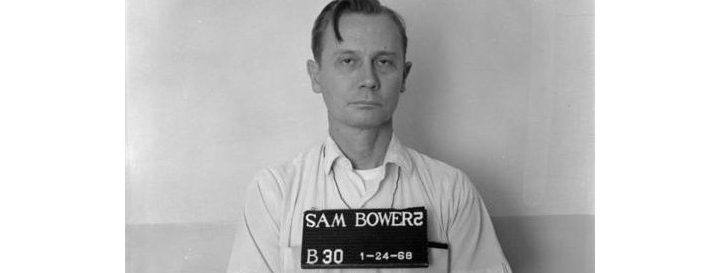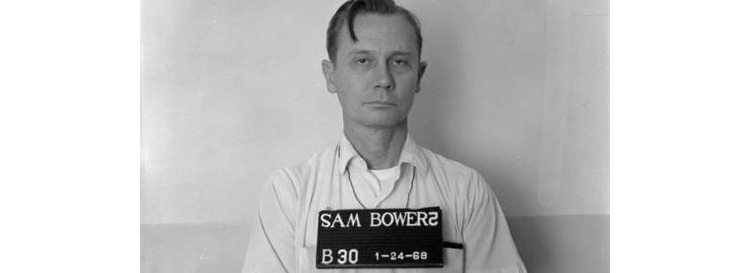Any more, as I hear about the bad and violent actions people take against other people, I shudder.
I held onto a naivete about how “good” people — those who believe in God — were somehow better, that their relationship with God would guide their feet and their actions. They would see other human beings as just that — human beings — and treat them as they would want to be treated. For Christians, that principle is actually in the Bible: “In everything … do to others as you would have them do to you” (Matthew 7:12).
But it seems Christians, and others who have professed a belief in God, have ignored that precept in far too many instances. My awareness of this probably was brewing throughout my youth when I watched some of my Christian friends be mean to others, but it reached a peak when I read about one Sam Bowers.

Susan Smith
In the 1960s, Bowers was the imperial wizard of the Ku Klux Klan and leader of the Mississippi White Knights, a secret division of the KKK. In the ’60s, the Mississippi White Knights claimed a membership of more than 10,000. The FBI attributed nine murders and 300 beatings, burnings and bombings to this group led by Bowers. He was the mastermind behind the killings of three Civil Rights workers in 1964 — Michael Schwerner, James Chaney and Andrew Goodman — and led the group in 1966 in the killing of Vernon Dahmer, a Black man who helped register Black people to vote.
What got to me is that Bowers was a devout Christian. At the time I learned this, I did not know — and did not know there could be — a Christianity without Christ and without God. According to reporter Stuart Wexler, Bowers, as well as many others, “embraced a godless ideology and relinquished God’s grace.” Because of his Christ-less Christianity, he enveloped and embraced parts of the practice of Christianity with which he was familiar, including prayer and fasting, but he led people to pray and fast as they prepared to conduct murderous raids on Black people in the South.
Brutal violence carried out by humans who profess to follow God against other humans is not a rarity. From street murders to domestic violence, to wars, humans murder and maim others and still profess a belief in God. The spiritualist Howard Thurman, noting the ferocity of the hatred and violence carried out during war, wrote, “During times of war, hatred becomes quite respectable, even as it has to masquerade under the guise of patriotism.”
“Brutal violence carried out by humans who profess to follow God against other humans is not a rarity.”
It is because of the human capacity to feel and act upon hatred that resides in the human spirit that violence is so common and so brutal. I cannot understand how Europeans who said they loved God were able to carry out genocide of non-white people in the lands they “discovered.” I cannot understand, again, how religious, churchgoing people were able to brutalize the Congolese under the direction of King Leopold II of Belgium and think nothing of it, nor can I understand how the nuclear bombs dropped on Hiroshima and Nagasaki during World War II are still regarded as acts of heroism. Neither can I understand how religious people seem to take as a matter of fact — of righteous fact, if the truth be told — the genocide of Native Americans in this country and the extermination of Jews in Nazi Germany, and I cannot understand why the world deems it to be OK for the Israeli government to be destroying the Palestinians en masse, when it is Hamas they are seeking to annihilate as a result of that group’s terrorist attack on innocent Israelis.
The number of people killed because of violence is staggering. An estimated 100,000 Native Americans were forced to walk the Trail of Tears, and about 15,000 of them died. Between 1500 and 1866, about 12.5 million Africans were transported from Africa to the Americas and about 1.8 million died during the Middle Passage. About 6,500 Africans and African Americans died due to lynching carried out between 1865 and 1950, and during the Civil War, 620,000 were killed. In World War I, 21 million people lost their lives, including 9 million military personnel. In World War II, 38 million people were killed, and in the Vietnam War, 3.8 million died.
I could go on, but the point has been made.
I cannot believe any of this is OK with God, yet God lets it happen. In our creation, God apparently included a spiritual path toward hatred and violence, a path that allowed us to think hating and killing what God had created was OK. That means our creation is or was flawed — if we are to believe our assignment in life is to follow God. If it is OK with God that people bypass the religion taught to us that says God is good and God requires us to live in harmony with each other, then there is something wrong. We are — or people like me are — looking for a God that does not exist.
Please understand: I am not saying looking for a God of community and love is the only way to practice religion, nor am I saying anyone who is looking for that kind of God is successful in meeting that criterion all the time. We fail miserably as humans. But it seems a belief in a God that disparages evil and hatred of others and outright violence — including murder — is a problem. I yearn for a divine intervention in which God says to those who live in violence and hatred, “Enough!” I yearn for a God who sits heavily on the shoulders and in the hearts of those who profess belief.
God’s silence in light of the inhumanity we humans practice against each other is troubling, more so because those who have no trouble fighting against, taking away the rights of or murdering those whom they dislike for one reason or another profess belief in that God.
Sam Bowers had prayer and fasting for his murderous lynching crews; people who stormed the Capitol building on January 6 stopped while in the building to lift holy hands and pray.
In the 18th century, Jonathan Edwards preached a sermon titled, “Sinners in the Hands of an Angry God.” I would challenge Edwards and say we are humans in the hands of a silent God, one who is permissive of the evil we are prone to practice against each other.
Any more, as I read and study the violence we perpetrate against others, I shudder. My God is silent and unavailable or unwilling to stop our destruction of each other — actions we take based on hatred, greed or the lust for power or of all of those issues.
Why the silence, God? Why?
Susan K. Smith is an ordained minister, activist and author. A graduate of Yale Divinity School, she is the director of clergy resource development for the Samuel DeWitt Proctor Conference. Her latest book is With Liberty and Justice for Some: The Bible, the Constitution, and Racism in America.


